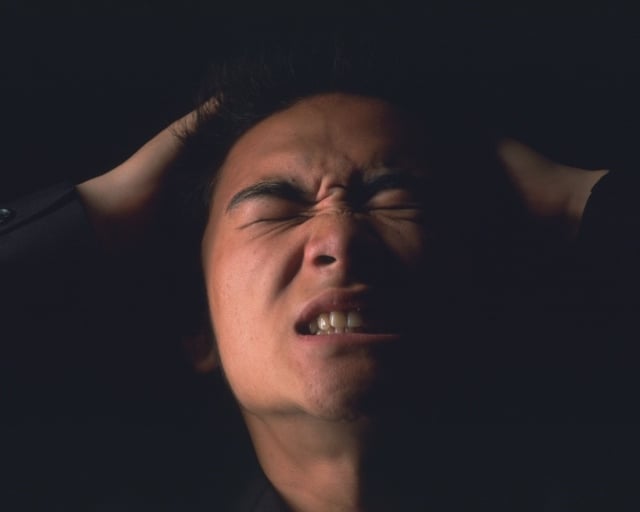
"Anger is the only healthy response to injustice." — Dr Martha Beck
Anger and addiction are intimately connected. We find that many of the participants in our program who are dealing with substance abuse also have unaddressed anger toward people, events, and past trauma.
In this video, Caroline McGraw discusses and answers the following questions:
- What is anger? How is anger defined?
- What is the purpose of anger?
- What's the difference between anger, depressions, anxiety and panic, and how are they connected?
- How should a person effectively deal with anger?
- Why does anger seem to more negatively impact compassionate and sensitive people?
- Why does anger exacerbate mental health and addiction issues?
- How can a person address the root causes of anger and the limiting behaviors it can lead to?
What is Anger?
One way of looking at it is that anger is a feeling of frustration and of upset that we experience in our bodies based upon our thoughts. There are four main categories of emotion that we as humans experience:
- Sad
- Mad
- Glad
- Scared
All of the emotions can be grouped into these four overarching categories, and anger obviously falls under the mad category.
Often we forget that anger is just a feeling, because it seems so overwhelming and so scary to us, but it is a feeling that serves a very important function in our lives. When we understand that, it can begin to lose some of its fearsome power to scare us.
We really like the way Dr. Martha Beck defines anger in her memoir Leaving the Saints. She writes that anger is the immune system of the psyche which is essential despite its dangerous volatile energy, because it is the only healthy response to injustice. Think about that for a second.
Anger is the only healthy response to injustice.
What does that mean?
It means that anger is designed to wake you up, it's meant to bring your attention to injustices both within you and in the world around you.
It's designed to get you to pay attention to something.
If you can look at your anger like that, not as something shameful but as something that is here to wake you up, it can really shift the way that you deal with it.
We know that in our world so many people don't know how to welcome their anger and how to deal with it in a healthy way.
They typically see just two options.
Those options are either (A) They explode in a really destructive way, hurting others with their negativity and their really critical comments, or (B) They stuff that anger inside and they implode and they hurt themselves with it, and they don't dare to give it a voice and express it.
Neither of these things yields a positive or helpful results.
What we see again and again in our program is people who tend to be really compassionate and really sensitive to the needs and desires of others. We see that often they learn to stuff their anger down really early in life.
They do it because they care. They do it out of a sense of love and loyalty. It's not badly intentioned.
However, it has a negative effect because what happens when you try and push down an emotion, it's the same thing that happens when you try and keep an inflated beach ball underwater.

If you've ever tried to do this you know how hard it is. If you're trying to push something that has a lot of natural buoyancy, you have to exert a lot of force and constant energy and keep adjusting your balance in order to get that to stay below the waterline. It takes this really significant toll on you and it's really frustrating.
We have come to see that when you have this constant conflict when you're trying to keep your emotions down, particularly your negative emotions like anger, it builds this really significant internal tension, and so much so that it can contribute to and exacerbate mental health conditions like depression and anxiety.
Anger and Addiction Video:
Transcript: The Connection Between Anger and Addiction
Caroline McGraw: Hello everyone and welcome. I'm Caroline McGraw with The Clearing. Today, we are here to talk about the connection between anger and addiction. These two things are intricately connected and we find that many people with substance abuse struggle with a lot of unaddressed anger. If that pisses you off, that's okay. You are not the only one. Let's dial it back for a second though. Let's talk about what anger is. What's the definition of anger?
The Start of the Anger Addiction Cycle
The connection between addiction and anger goes like this: When you turn your anger inward against yourself, when you push it down and you refuse to express it, eventually it becomes depression. In our Program we define depression as anger turned inward.
Caveat here: Depression may feel like sadness, numbness, despair, apathy, that's all valid too.
We're just saying that it starts out as swallowed down anger, that that's the real root of the problem. It may become and manifest later as those other feelings, but the root cause is anger that you have not allowed yourself to feel or to express. Again, what happens when you refuse to feel your anger and the hurt that precipitated it?
Again, what happens when you refuse to feel your anger and the hurt that precipitated it?
Then you get cut off from your emotions and a lot of energy gets trapped inside of you.
You have these kind of internal walls. You've got one wall here that says, "I'm not going to feel my anger," and then you have one wall here that says, "I'm not going to feel my hurt," and you still have a lot of energy though within your system, so your energy bounces back and forth between these walls. Think of like a pinball game, with those little levers. Your energy is just bouncing, bouncing, bouncing, and that results in this kind of twitchy kind of crawling out of your skin feeling that we commonly refer to as anxiety.
That's what anxiety is. It's the feeling of your energy bouncing off of the internal walls you've set up around your emotions.
If that feeling gets really revved up enough, if you encounter a crisis or if something really scary happens, it increases the pace of your energy, "Boy, it's going really fast."
It gets really revved up and that is what we call panic. When you're having a panic attack, it's that energy revving to such an extent that it feels out of your control.
None of this is very comfortable, obviously.
As I'm describing this I'm thinking, "This sounds terrible," and it's very distressing to live like this and to be dealing with these stuff day in day out, every day, month after month, year after year. Is it really any wonder under that circumstance that you want to feel better, you want to stop feeling all of that panic, all that depression, that anxiety?
If you don't know how to address the underlying hurts and the core issues, then it makes sense to just reach for a drink, reach for a drug, reach for a compulsive behavior, to just give you a break from constantly having to deal with these stuff.
Worth noting: if you want to see an illustrated drawing of how all this plays out and fits together, check out understanding anger and addiction.
Breaking the Anger Addiction Cycle
I want to end by saying that there is a way out of the anger addictive cycle.
It's not inevitable that you reach for that drink or those drugs, or that compulsive behavior. You can learn how to face those original hurts and you can decide not to stuff down that anger and that sadness.
When you're first starting to do this, it really helps to have a trained counselor, to have some professional support walking with you as you do this, but the key principle is this: when you don't push it down, address it as you would if a friend came to you with their hurt or their anger or their sadness.
Just listen.
Just hold space.
Just be present with them.
Be kind.
Don't snap harsh judgments at them.
Don't say, "You shouldn't feel that way. That's stupid," or, "That's wrong."
You probably wouldn't say that to your closest friend, so don't say it to yourself. I know it's easier said than done and I know it takes practice, but the principle really holds true.
It's not something you'll learn in a day like that, but if every day you decide, "All right. For the next 10 minutes, I'm going to feel the feelings and I'm not going to judge them. I'm just going to let them come and I'm going to respond to myself the way I would respond to a friend who's feeling this way," things can start to shift in your life.
The really simple key concept I want you to take away from this video is this: when we apply love to the parts of ourselves that hurt, we heal.
There's plenty more we could say about this, and we are planning more videos to talk a bit more about anger and addiction and how to navigate all of these emotional dynamics. But your key takeaway is that when you apply love to the parts of yourself that hurt, you heal.
Call us at (425) 275-8600 to talk about anger and sobriety, anger and relapse, anger and addiction recovery, and other anger and addiction-related challenges you may be facing.
You are not alone.
Download E-Book Healing Core Issues



